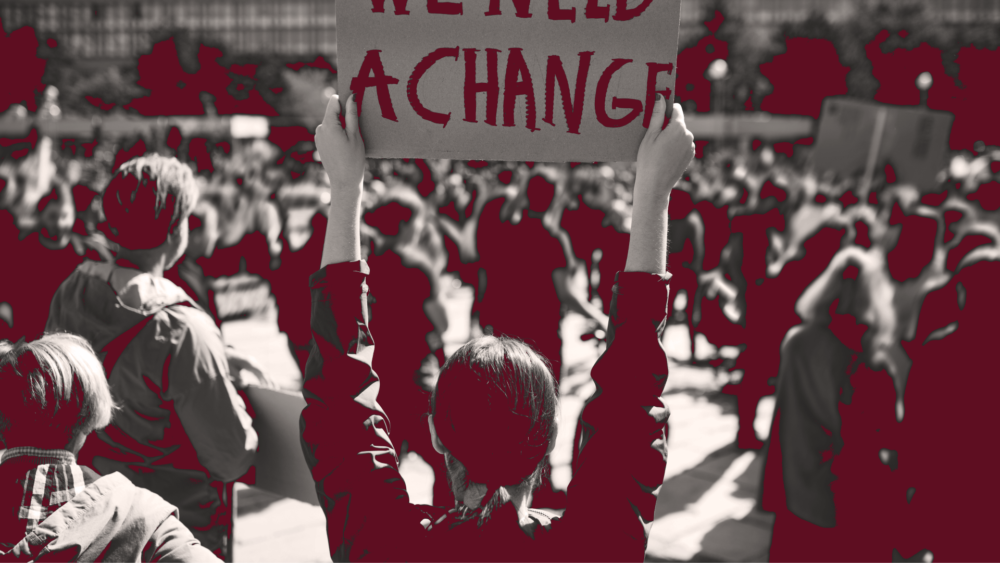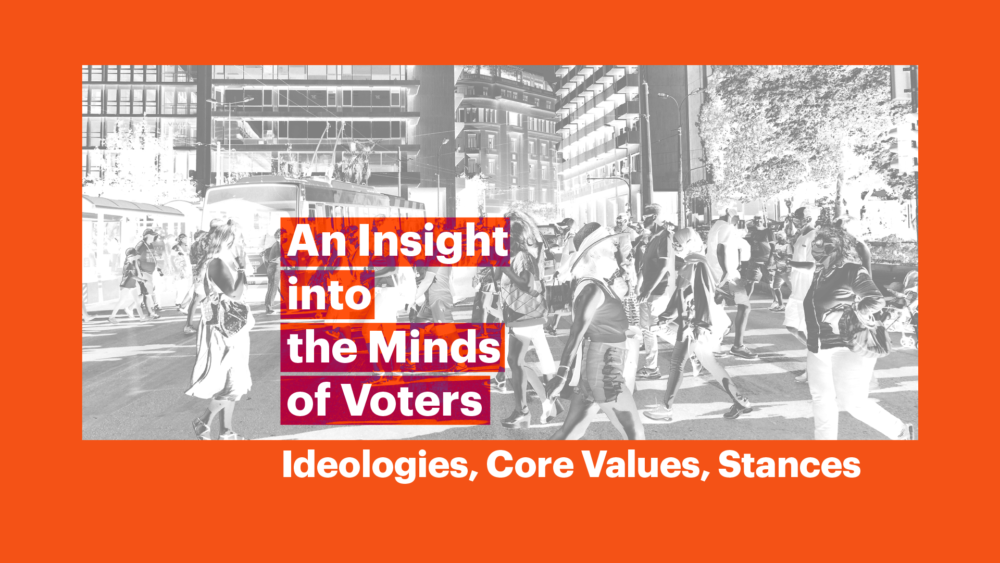
Eteron Research: The contradicting answers regarding taxation
People’s opinions regarding the country’s taxation policies were a major focus point of Eteron’s wide-scale quantitative research regarding the economy and social justice. The research was conducted across the country in December 2021 by aboutpeople.
Taxation politics are a central differentiating point between the major political currents. On one side, social-democracy and the Left prioritise an increased taxation of the wealthy in order to achieve redistribution of social income through a strong welfare state. On the other hand, for neoliberalism, the drastic decrease of taxing regardless of one’s income is part of their ideological identity.
Regarding taxation politics, Greece follows the example of the Western countries. In the public dialogue, the dominant stance is in favour of a decrease in taxes paid. At the same time, despite the decrease implemented in recent years, the Greek economy has a distinct trait that could be described as significant tax evasion.
Between 2008 and 2018, tax revenue rose from 33% to 39% of the GDP. Though this percentage is more or less at the same level as the EU average, the Memorandums were associated with overtaxing and the impoverishment of the middle class.
Class (self-)placement
Another distinct Greek trait is the citizens’ perception regarding their class placement. An indicative depiction can be found in Eteron’s research:
- 7% place themselves in the upper/ upper-middle class
- 50% place themselves in the middle class
- 27% place themselves in the lower-middle class
- 14% place themselves in the working class
Eteron’s research confirmed that many of those who place themselves in the middle class don’t “objectively” belong there, according to their annual income.
The questions regarding taxation
The phrasing of a question is always an issue when it comes to surveys. This is because the way a question is asked can potentially “lead” to a specific answer. Also, a multifactorial issue can’t be understood by answers to a single question. There have to be several answers in order to shed light (as much as possible) on the different aspects of social perception.
In Eteron’s research, we followed the multiple questions approach, in order for the answers to reveal to us (as much as possible) the participants’ honest opinions. In some cases, we used really ideologically tinted phrasing in order to avoid miscomprehension.
Tax the rich
A total of 83.2% “agrees” and “probably agrees” with a tax increase of the rich in order to support the most financially vulnerable. It is an almost unanimous vote of confidence to a typical left stance, regardless of the political (self-)placement of the participants. Other than those who place themselves Left and Centre-left, 75.8% of those who place themselves Centre-right and 76.7% of those who support the Right are in favour of an increase in taxes for the rich. As expected, the rich have the lowest percentage of support for this suggestion, even though the rate remains very high at 66.1%.
Lower taxes
Social conscience, though, is contradictory. 78.9% adopt a typical neoliberal stance, by prioritising the decrease in taxation so that businesses can grow and hire workers. Only 16.4% would prioritise increasing taxes in order to improve public services and the welfare state and decrease inequalities. At this point, though, we should note that this question has the form of a dilemma where one option is growth and a lower unemployment rate and the other is the issue of social justice – just like it is done in the public dialogue. Still, the difference is significant in favour of lowering taxes. Even amongst the leftists there’s a majority (45.7% in favour/ 43.6% against) who are in favour of a decrease in taxation. There is also a possibility that the documented correlation depicts society’s prioritisation for lower unemployment rates over inequality mitigation.
Welfare benefits
63.4% agree/ probably agree with the equally neoliberal viewpoint that the middle class shouldn’t pay for the welfare benefits of the most vulnerable (40.3% agrees and 23.1% probably agrees). The only group that for the most part disagrees is the Left (53.4% of those who place themselves in the Left disagree), while even people who earn up to 500 Euros per month agree with this particular statement (62.1%). The answers to this particular question should be combined with:
The 45.1% that believe that the unemployed could find work if they really wanted to (50.7% disagrees),
The 50.6% that agree with the statement that when the State provides numerous benefits, it teaches its citizens not to make an effort (45.2% disagrees)
Still, το 61.8% think that the State should increase welfare benefits both in terms of duration as well as the amount received.
The answers to the questions regarding welfare benefits undoubtedly show the impact of “social automation” as well as the influence of the “anti-welfare” narrative that has been developed in the last few years. At the same time, we should keep in mind that the participants in this survey are including the majority of the working class in their perception of “the middle class”. Therefore, the answers to these questions might be depicting a feeling of tax injustice. In any case, the answers given show the majority’s strong objection to carrying a heavier tax load.
The tax burden
88.5% agree/ probably agree that the tax burden in Greece falls primarily on employees and pensioners (71.5% agree and 17% probably agree). It is a common criticism of the taxing system coming from the Left, that highlights significant tax-evasion as a major factor of social injustice. It is indicative that those who place themselves in the Right almost unanimously accept this statement (85.9%). The only group that has a relatively lower acceptance rate regarding this particular statement (though still high) are the freelancers with 66.3% – a result that was to be expected.
The answers to this particular question could be combined with the support of a lower taxation plan and the refusal to undertake the tax burden of the welfare benefits.
From that point of view, the citizens’ stance on welfare benefits could be an indication of not just the impact of neoliberalism, but also of their feeling that taxation burdens aren’t distributed fairly. It is worth noting that Eteron’s research shows that there’s an overall feeling of injustice among citizens in Greece.
- 74.5% consider Greece to be an unfair country.
- 84.7% feel that the wealth is distributed unfairly at the expense of the workers.
- 68.3% think that inequalities in Greece are currently increasing.
- 82.3% believe that there are more inequalities in Greece than in other European countries.
Taxation – Welfare State
When asked if we should have an increased taxation and a strong welfare State or low taxation with less State welfare, 38.4% prefer the former and 43.7% opt for the latter. Given the very strong phrasing of the question, there should be no doubts regarding the dominance of the neoliberal stance favouring low taxation. It is worth mentioning that, due to the different phrasing of this question compared to the one regarding the government policies on Index 2, the support shown on low taxation is a lot smaller. The neoliberal stance prevails by 5.3%, while 17.9% (a significant percentage) don’t express an opinion.
There are clear indications of political stance to the answers received on this particular dilemma. 51.8% of those who place themselves in the Left and 51.4% of those belonging to the Centre-left prioritise the welfare State, while 55.3% of those who place themselves in the Centre-right and 52.1% in the Right, prioritise low taxation. The people who place themselves in The Centre are those who make a difference on this occasion, as they prioritise low taxation at a percentage of 46.1%. Still, it is indicative that 31.1% of those who belong to the Left prioritise low taxation over a welfare State.
Eteron’s research doesn’t show a direct connection between class (self-) placement and the political stance on taxation and the welfare State. The group with the highest support of the low taxation option are people who earn up to 500 Euros per month, while the group that mostly supports a stronger welfare State are those who earn over 2000 Euros per month.
Conclusions
Eteron’s research showed that the citizens’ stance towards economic policies is mixed and contradictory, incorporating both progressive and neoliberal viewpoints. Their stance on taxation was no exception. It is important to note that there isn’t a concrete alignment between the citizens’ opinions and their ideological reference placement. Left voters embrace right-winged views and vice versa. This makes the struggle for ideological dominance extremely complicated.
The fact that there’s a mixed and contradictory culture doesn’t mean that we can’t discern certain tendencies.
More specifically:
- There’s a dominant stance that there should be a decrease in taxation.
- The majority of the citizens clearly refuse to undertake new tax burdens.
- There’s a dominant feeling of injustice regarding the taxation policy.
- There is a very high percentage that’s in favour of taxing the wealthy.
A progressive economic policy sees in taxation a key mechanism for wealth redistribution and public sector investments’ promotion. Anyone who would strive to broaden the outreach and increase the impact of progressive viewpoints on taxation, should:
- Keep in mind that citizens often place themselves in a different class than the one they “objectively” belong to.
- Emphasise on the topic of tax justice, and especially on the issues of tax-evasion and tax avoidance of the rich.
- Not make general remarks regarding taxation, but rather accurately determine which social groups would need to curry the burden.
- Make clear that supporting the welfare State isn’t just a step towards social justice, but also it promotes growth and helps decrease unemployment.
- Fight the long-term ideological battle to explain the social use of taxation. In the long-term, we can’t change society if we don’t change the way citizens think.


